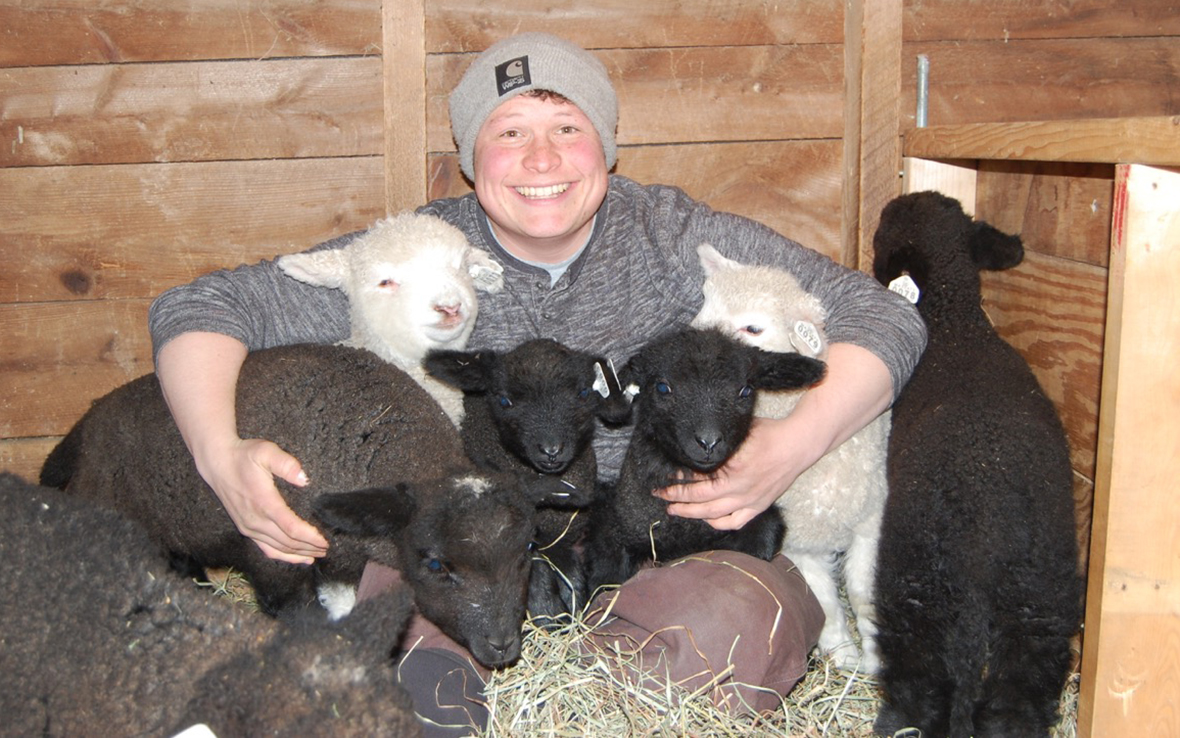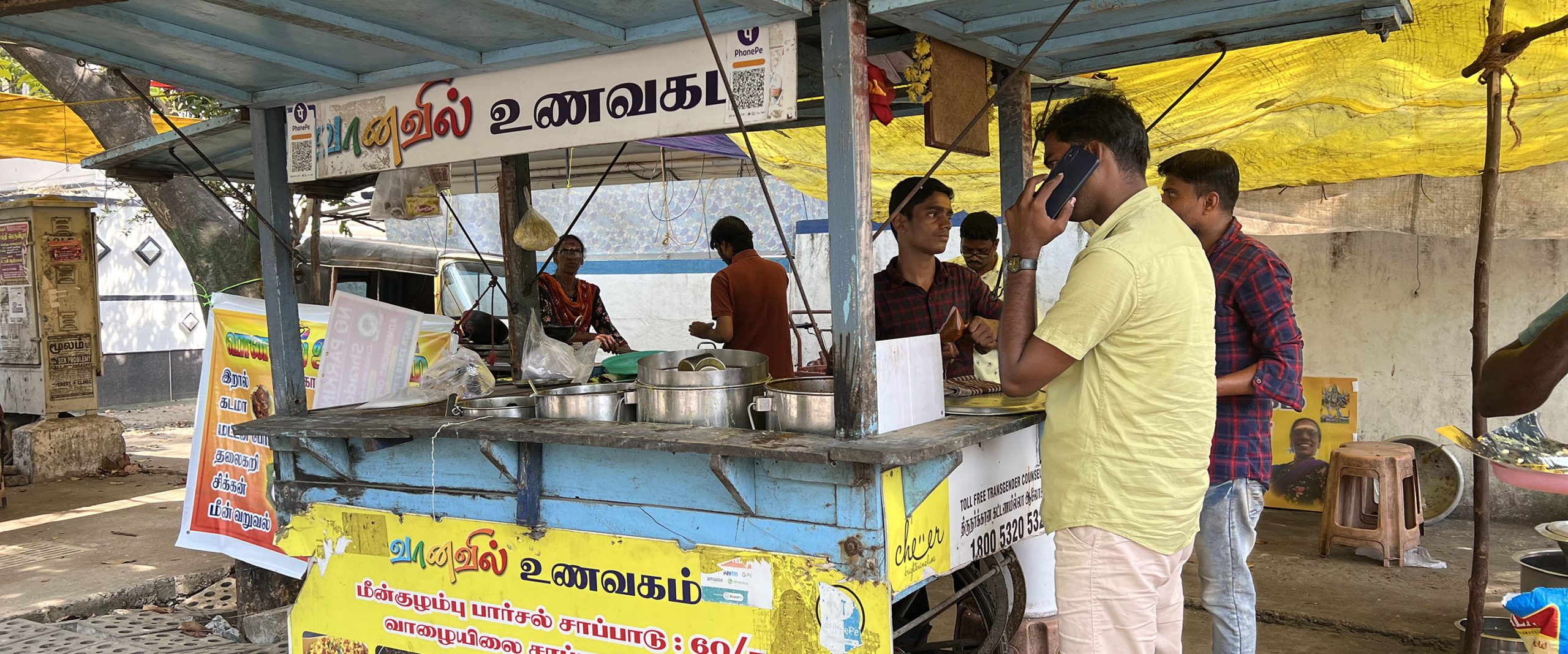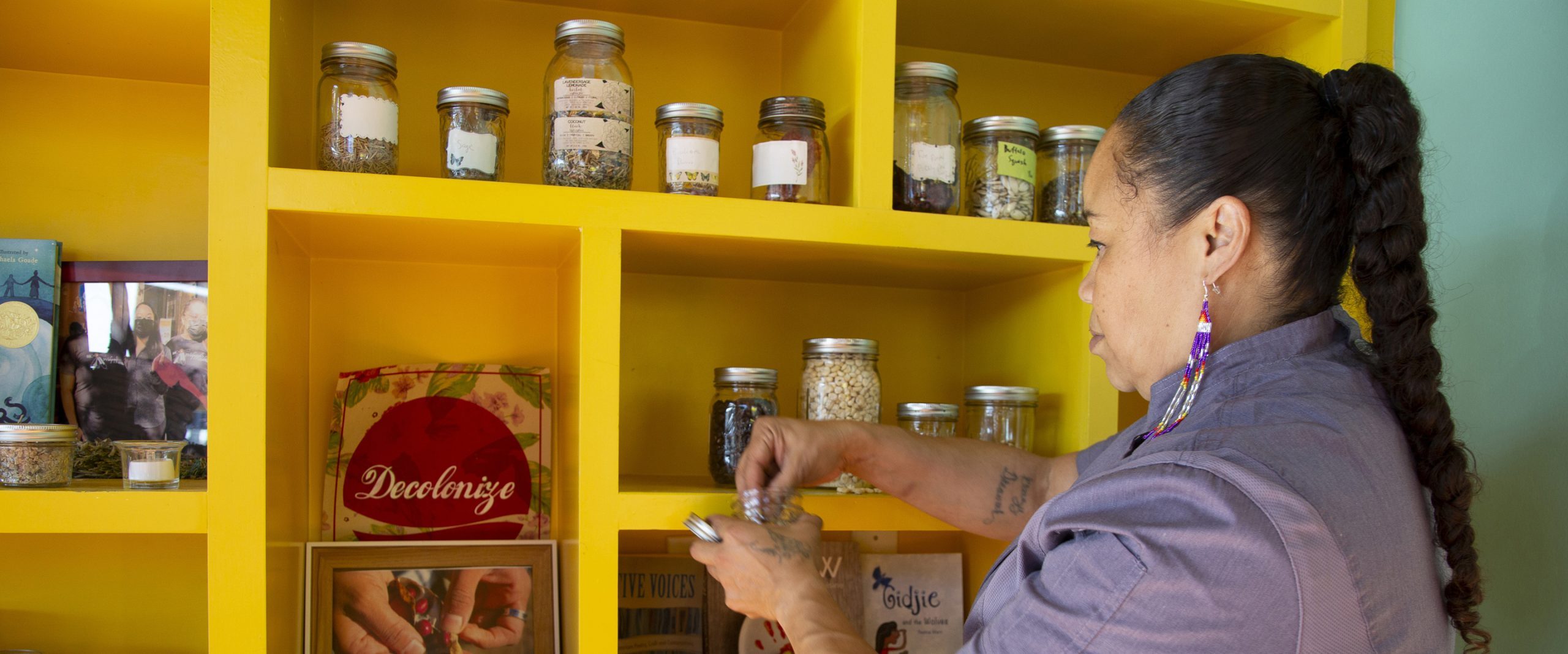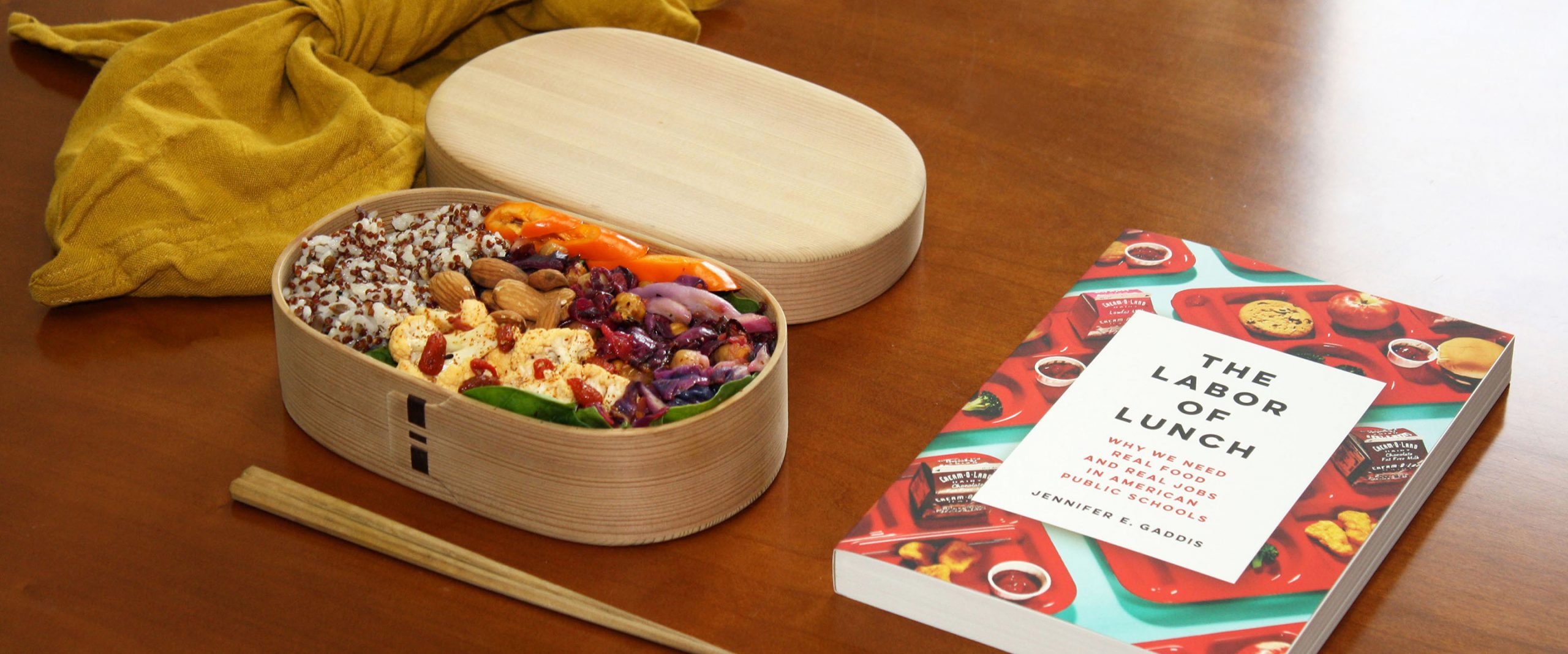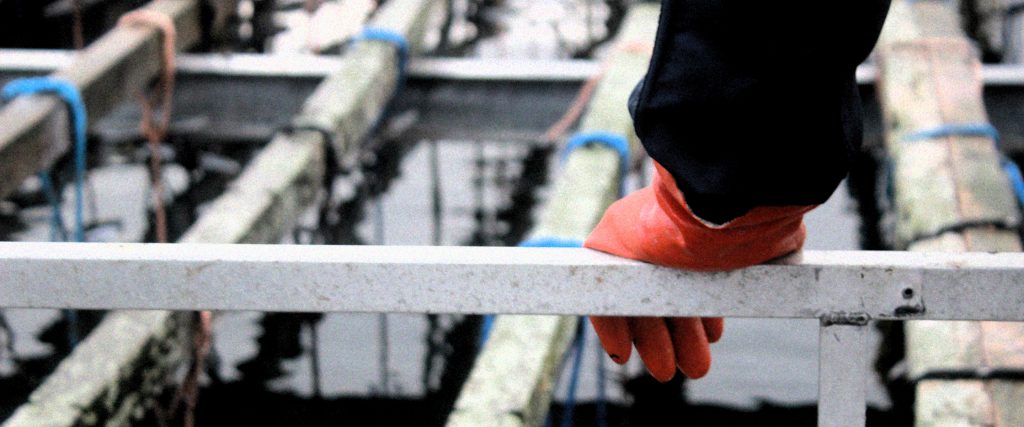Jake advises that the experience of working on a farm will teach you quickly whether you want to continue that work, or not - it's full of long hours back breaking labor, and unexpected trials. But that reminds us that the same can be said of a stereotypical office job - some folks are simply not suited to be indoors all day. The important thing, in either situation, is to learn from your experience, and listen to your instincts. That's how Jake was able to heed the call of working in food, and you can, too.
When did you know that you wanted to work in food?
The summer going into my sophomore year of college I interned at Red Gate Farm (where I now work full-time). It was the first time I ever lived and worked on a farm and it was the happiest I'd ever felt. My very first night on the farm, I asked what was for dinner and my co-worker responded, "Let's see what's in the garden." I was so surprised and excited about her response. Though conceptually I understood where vegetables and fruit came from I had never actually picked something right from the source to eat. I was surrounded by kale, chard, beans, squash, strawberries, and many more delicious eats. It was all so fresh and delicious! That summer I worked my butt off all over the farm (growing your own food and taking care of livestock is hard, laborious work). But living in a beautiful place, enjoying the literal fruits of my labor, and connecting to my natural surroundings was so rewarding that I knew that working with food is what I wanted to do.
How did you get your current good food job?
I was fortunate to find my job directly from the source! My boss, Ben, was also my college rugby coach. He was always looking for players to work at the farm during the summer and I immediately was intrigued by the idea. I was a kid from the suburbs of Philadelphia and farming was very much uncharted territory for me. Knowing someone in the field you are interested in is tremendously helpful. It definitely opened doors for me. After working at the farm all four summers of college, I moved back to Philadelphia once I graduated, but I stayed in contact with Ben. And I'm so grateful I did because it opened up the opportunity to return, which I happily did in the winter of 2016. My biggest advice for folks is to stay connected with previous mentors, teachers, bosses, etc. Their network and knowledge is invaluable and you never know when an opportunity will arise in which they have you in mind!
How did your previous work or life experience prepare you for a good food job?
I was fortunate to go to a liberal arts college that really allowed me to explore so many different topics within this one interest. When I think about food, it's so much more than just diet - it's social, economical, political, environmental. It reaches all aspects of life. Being passionate about what you do is tremendously important. If you are not passionate, you are not going to put in the hard work that is necessary for a good food job, and more importantly, you won't be happy.
Working on the farm also helped me develop confidence in my skills, value and understand hard work, and appreciate collaborating with others. These initial experiences really prepared me to continue to work in this field. You'll learn very quickly when its four in the morning and you have to get up because the sheep got out whether you are really up for this type of job. There will be numerous days where you are on your feet all day, working in all sorts of weather conditions. Those are the moments that prepare you for pushing through the hard times.
What was the greatest obstacle you had to overcome in pursuing your Good Food Job dream?
My greatest obstacle was the stigma of having a job in farming. I come from an upper middle class family and I went to a private liberal arts college. I graduated with the expectation that I had to go into a white-collar job. So I ended up getting a job working at Philabundance, the food bank of Philadelphia. I was still connected with food, but in a very different way than I had previously experienced. I was working in a windowless cubicle doing the 9 to 5 grind. I learned a lot from working in a large nonprofit and met some incredible people, but I realized that specific working environment was not for me. Feeling frustrated and unsure of what my next steps would be. I took a week-long vacation to go hiking in New England. That trip made me realize I wanted to be outdoors and back on the farm working with kids.
Name one positive thing that a former employer taught you that you continue to appreciate?
My former boss at the food bank, Lisa, was always amazingly supportive of my personal and career growth. I began my process of transitioning my gender from female to male half way through my job, and every step of the way she made sure I was taken care of. What could have been a very stressful time was the exact opposite. She notified our partners of my name change, she made sure the organization respected my needs and helped file all the necessary paperwork for medical leave. She was supportive in every way possible. She respected me and I have so much respect for her in return. Creating safe spaces for your employees is so important. I was a better worker because I knew I was supported and respected. I am so grateful that I was under her leadership during such an important part of my life/transition.
What can you identify as the greatest opportunities in food right now?
Education! I work on an educational farm which means we use the farm experience to work with kids to help instill values of hard work, self-confidence, and kindness. In today's political climate, it's more important than ever to work with our youth and get them connected with the environment and with one another. We need our youth to feel connected with the natural world. I think our culture is trending towards sustainability, local foods, and the importance of being outside!
If you could be compensated for your work with something other than money, what would it be?
This is a bit of a trick question for me! The farm life is typically not the highest paying gig so already part of my compensation is room and board. So the obvious answer for me is that I'd get paid in unlimited farm products (veggies, meat, maple syrup!) and a sweet farm cabin. The less obvious choice (money not an issue) - I think personally knowing that every one that comes to Red Gate Farm leaves feeling better about themselves and that they've learned something new and exciting would be enough. Knowing my work is producing positive results in the community is an amazing feeling.









